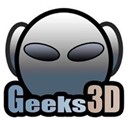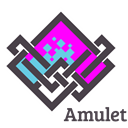Top OpenFL Alternatives: Explore New Horizons for Game Development
OpenFL is a powerful framework that allows developers to build games and applications for a vast array of platforms, from desktop to mobile and even consoles, utilizing a Flash-like API. Its ease of use and ability to leverage SWF assets has made it a popular choice for rapid development. However, for various reasons—be it specific feature needs, programming language preferences, or community size—developers often seek an OpenFL alternative. This article delves into some of the best alternatives available, helping you find the perfect tool to bring your creative vision to life.
Top OpenFL Alternatives
Whether you're looking for a different programming language, a more focused 2D or 3D engine, or a broader community, these alternatives offer compelling options for game and application development.

LÖVE
LÖVE is an excellent open-source 2D game framework that uses Lua, making it a fantastic OpenFL alternative for those who prefer a lightweight scripting language. It's free and works across Windows, Mac OS X, Linux, Android, iOS, iPad, and FreeBSD, offering great cross-platform support. Its key feature is its focus on 2D game development, which can be ideal for projects not requiring 3D capabilities.

MonoGame
MonoGame is the spiritual successor to XNA, providing a robust, free, and open-source framework for creating powerful cross-platform games. As an OpenFL alternative, it excels with its C# scripting, support for both 2D and 3D game engines, and extensive reach across desktop, mobile, and console platforms (Windows, Mac, Linux, Web). It's a strong choice for developers comfortable with .NET environments.

FreeBASIC
FreeBASIC is a completely free, open-source 32-bit BASIC compiler with syntax similar to MS-QuickBASIC. While not a direct game engine like OpenFL, its compiler capabilities and QuickBasic support make it an interesting OpenFL alternative for developers who prefer a BASIC-like language for building applications and games on Windows and Linux. It's more of a foundational tool for creating executables.

Pygame
Pygame is a set of Python modules designed for writing games, built on top of the excellent SDL library. As a free and open-source OpenFL alternative, it's highly versatile, supporting Mac, Windows, Linux, Android, iPhone, HP webOS, Android Tablet, iPad, and AmigaOS. Its primary features include robust gaming functionalities and the ability to run directly from the Python interpreter, making it ideal for Python developers.

GeeXLab
GeeXLab is a cross-platform demotool for 3D programming, demos creation, game development, interactive applications, creative coding, and prototyping. It's a free OpenFL alternative that runs on Mac, Windows, Linux, and Raspberry Pi. Key features include GLSL support for advanced graphics and Python scripting for flexible development, appealing to those focused on visual programming and real-time rendering.

HaxeFlixel
HaxeFlixel is a 2D Game Engine that allows for easier cross-platform game creation using free, open-source technology. Since OpenFL itself uses Haxe, HaxeFlixel is a very natural OpenFL alternative for developers who want to stay within the Haxe ecosystem but prefer a different engine. It supports Mac, Windows, and Linux, making it a solid choice for 2D game development.

Amulet
Amulet is a free, open-source, Lua-based audio/visual toolkit suitable for small games and experimentation. It runs on Windows, Mac, Linux, HTML5, and iOS, offering a wide range of platforms like OpenFL. As an OpenFL alternative, Amulet is ideal for developers looking for a lightweight, Lua-centric framework for rapid prototyping and small-scale game development, especially if they value simplicity.

Flixel Game Engine
The original Flixel Game Engine is an open-source game-making library that is completely free for personal or commercial use. While HaxeFlixel is a port, understanding the original Flixel can be beneficial. As an OpenFL alternative, it offers a simplified approach to 2D game development on Mac, Windows, and Linux, appealing to those who appreciate its straightforward design.

LÖVR
LÖVR is a simple framework for creating VR experiences with Lua. It's a free and open-source OpenFL alternative, particularly for those interested in virtual reality development. LÖVR projects work on Windows, macOS, and Linux, and are compatible with various VR headsets like HTC Vive and Oculus Rift, making it a specialized choice for VR-focused projects.

HaxePunk
HaxePunk is an open-source framework ported from FlashPunk, designed to allow you to build your game on any platform. Like HaxeFlixel, HaxePunk is a fantastic OpenFL alternative for developers who want to leverage the Haxe language. It's free and supports Mac, Windows, and Linux, offering a strong, community-driven option for creating cross-platform games with a FlashPunk-like workflow.
Choosing the right OpenFL alternative depends heavily on your project's specific needs, your preferred programming language, and the target platforms. Each of these options offers unique strengths, from 2D and 3D capabilities to VR development and specific language integrations. We encourage you to explore them further to find the perfect fit for your next game or application.